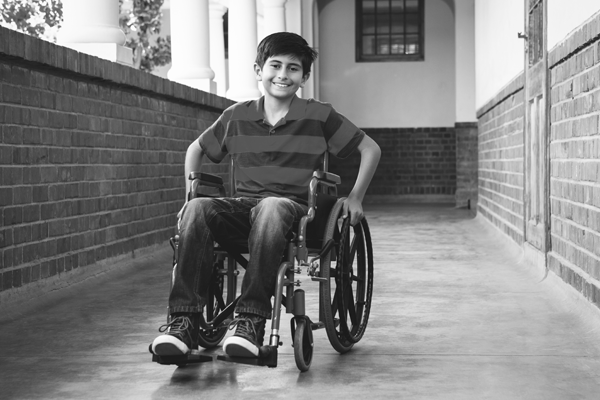Infantile Spasms Respond Poorly to Common First-Line Treatment
Infantile Spasms Respond Poorly to Common First-Line Treatment https://pediatricsnationwide.org/wp-content/themes/corpus/images/empty/thumbnail.jpg 150 150 Jeb Phillips Jeb Phillips https://pediatricsnationwide.org/wp-content/uploads/2021/03/Jeb-Phillips.jpg- November 24, 2015
- Jeb Phillips
Researchers recommend other initial treatments after finding that topiramate has a low rate of infantile spasms remission.
The early and effective treatment of infantile spasms has been associated with better developmental outcomes for patients, while delayed remission of the infantile spasms may contribute to poorer outcomes. In fact, a U.S. Consensus Report on infantile spasms has recommended early changes in treatment (e.g. 2 weeks) if there is no remission of infantile spasms.
But a study from Nationwide Children’s Hospital has found that one of the most frequently used first- or second-line treatments for the spasms, the anticonvulsant topiramate, is largely ineffective. And even in the few cases where topiramate led to remission, the remission was temporary with all responders subsequently experiencing relapse.
“We lose precious time if we fiddle around with medications that don’t often work,” says John R. Mytinger, MD, a neurologist at Nationwide Children’s, director of the hospital’s Infantile Spasms Program, and senior author of the study. “We have only three drugs that have greater than class IV evidence of their effectiveness for infantile spasms – ACTH (adrenocorticotropic hormone), vigabatrin and high-dose oral corticosteroids. Clinicians should use those as first- and second-line treatments, not topiramate.”
The study, published in the journal Pediatric Neurology, reviewed the cases of 31 patients at Nationwide Children’s whose infantile spasms had been treated with topiramate. Only three of these patients experienced clinical remission, and only two experienced electrographic remission as measured by electroencephalography (EEG). The three who responded to treatment achieved remission at 14, 20 and 70 days, and infantile spasms subsequently relapsed in all three patients while taking topiramate.
In contrast, 23 of 41 patients treated with ACTH during the same time period achieved clinical remission, and all of those achieving clinical remission who also had EEG data available achieved electrographic remission.
A 2012 survey of members of the Child Neurology Society, led by Dr. Mytinger, found that as many as 30 percent of responders in some situations use topiramate as a first- or second-line treatment for infantile spasms. Dr. Mytinger, who is also an assistant professor of Clinical Pediatrics and Neurology at The Ohio State University College of Medicine, says that it is not entirely clear why topiramate has become such a widespread early treatment for infantile spasms.
A small 1998 pilot study did find a greater remission rate than subsequent studies have reported. Topiramate is also widely available at most pharmacies and has relatively few side effects. Other treatments such as ACTH may require an insurance approval process and extra patient monitoring for side effects, Dr. Mytinger says.
Nationwide Children’s stopped using topiramate as an initial treatment for infantile spasms after Dr. Mytinger became director of the Infantile Spasms Program in 2012. Well before the recent study, his experience led him to conclude that infantile spasms responded poorly to the treatment.
“I hope study will serve as a reminder or a wake-up call to clinicians,” he says.
Reference:
Weber A, Cole JW, Mytinger JR. Infantile spasms respond poorly to topiramate. Pediatric Neurology. 2015 Aug;53(2):130-4.
About the author
Jeb is the Managing Editor, Executive Communications, in the Department of Marketing and Public Relations at Nationwide Children's Hospital. He contributes feature stories and research news to PediatricsOnline, the hospital’s electronic newsletter for physicians and other health care providers, and to Pediatrics Nationwide. He has served as a communications specialist at the Center for Injury Research and Policy at The Research Institute and came to Nationwide Children’s after 14-year career as daily newspaper reporter, most recently at The Columbus Dispatch.
-
Jeb Phillipshttps://pediatricsnationwide.org/author/jeb-phillips/October 13, 2015
-
Jeb Phillipshttps://pediatricsnationwide.org/author/jeb-phillips/
-
Jeb Phillipshttps://pediatricsnationwide.org/author/jeb-phillips/January 19, 2016
-
Jeb Phillipshttps://pediatricsnationwide.org/author/jeb-phillips/







